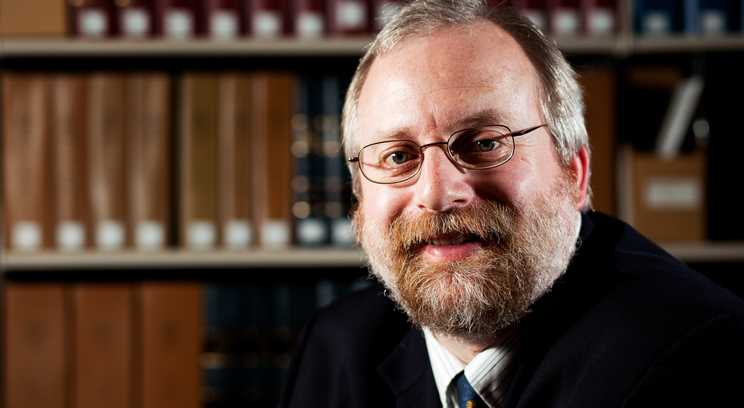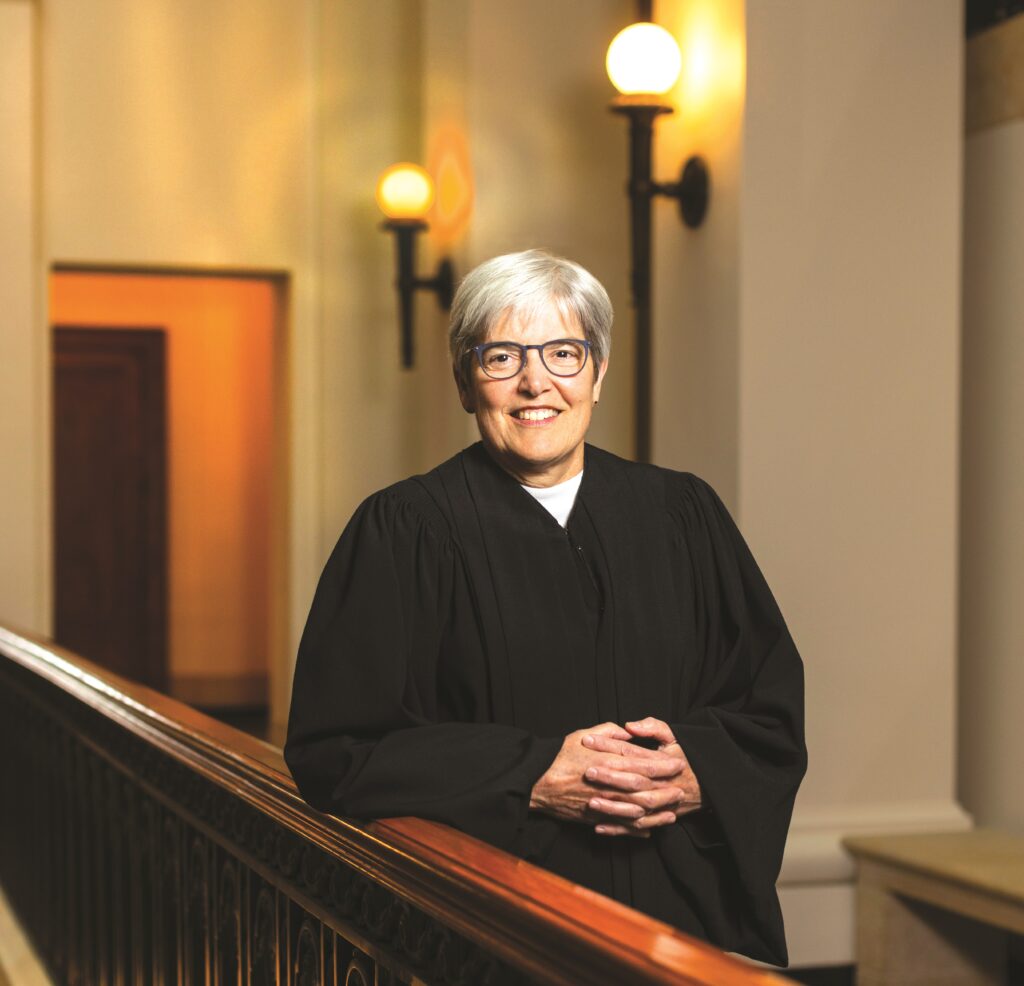Sometimes all those classroom activities in high school make a difference in somebody’s life. Case in point? Brad Walz ’04, a share-holder at Winthrop & Weinstine, P.A.
Walz grew up in Bloomington, Minn., as an active youth who played hockey, soccer and baseball. As a freshman at John F. Kennedy High School, his social studies class conducted a mock trial in which he played the role of plaintiff’s attorney in a civil matter. He and his team handled discovery, worked with witnesses and prepared for trial just as a legal team would.
“The process was fun and I got a good grade. It was a really positive experience,” Walz said. That event planted a seed about the possibility of going to law school.
Walz chose St. Thomas for his undergraduate degree based on the reputation of the university and its alumni, as well as its Catholic identity. He played hockey and majored in economics with a legal studies minor. “Through econ and law courses, I saw the impact of patent laws on the market, and was intrigued,” he said. Those classes solidified Walz’s conviction that he wanted to pursue a legal career with an emphasis in intellectual property, or IP.
When it came to choosing a law school, St. Thomas was the logical choice. “Having experienced St. Thomas as an undergrad, I believed the university would develop a first-class law school, one whose reputation would be as strong as the university as a whole,” Walz said.
School of Law Experience
When asked to describe his years at the School of Law, his reply was, “In a word, great!” Much of the credit for that positive experience goes to his classmates. “I can’t say enough good things about them. We all got along so well,” he said. “Lots of us still keep in touch.”
While he studied at the School of Law, Walz requested mentors who were involved in IP work. He was paired with Tim Kenny of Fulbright & Jaworski LLP, and Michael Collyard, now with Robins, Kaplan, Miller & Ciresi. “Through these two lawyers, I was able to see the practical side of what it’s like to have an IP practice,” Walz said. “Mike is a St. Thomas alum who had played hockey, so we had that in common as well as our interest in IP law.”
Academically, Walz praised the School of Law’s emphasis on legal writing. “The school does an amazing job of preparing law students to be effective writers. These writing skills help me both think critically about issues and articulate them clearly,” he said. Even more influential was the collegial atmosphere engendered by the faculty. “The professors foster an environment that teaches you to think differently – which is what law school is supposed to do – but not by embarrassing you. They’re not out to make you look bad,” he said. “It’s OK to give a wrong answer. It’s how people learn. This classroom environment helps facilitate a first-class legal education.”
Like many of his classmates, Walz gives back to the School of Law. He recently completed a two-year term on the Alumni Association Advisory Board, and currently is helping with the annual giving campaign.
In addition, Walz has helped out in the classroom. Adjunct Professor Bruce Grosland asked Walz to be a guest coach in the Negotiations class, and he has spoken in IP classes taught by Professor Tom Berg. Walz said Berg, who he describes as both “brilliant” and “highly respected,” is a major influence.
A Career in IP
After graduation, Walz did general commercial litigation for a small firm. Because he knew he wanted to specialize in intellectual property law, Walz researched and wrote about IP on his own time. After a year or so, this work led to a position in the IP practice area at Winthrop & Weinstine.
At the firm, Walz’s practice is divided equally between litigation and transactional work. In litigation, he generally acts as second chair in trademark-infringement suits. On the transactional side, he works with clients ranging from retail to software development companies on everything from evaluating strategic alliances to development and distribution agreements.
It’s interesting work that changes constantly. “The rise of cloud computing, for example, has changed how software is delivered,” Walz said. “We focus less now on delivery and more
on data security and privacy. I counsel clients who use cloud computing about what protections to put in place so that any data collected is properly secured.” He advises them about what to do when a security breach has occurred, whether they work for the software company with a leak or its client whose data has been compromised.
Walz likes the variety his job brings. The rush of competition is compelling as well – to a point. “I’m a competitive person, so litigation intrigues me. It’s adversarial and very strategic,” he said. “But it can get tiring. Constantly arguing over discovery responses, for example, can wear on you, so it’s nice to pivot and work on a business deal. Advocacy is still involved, but both sides have the same goal of making money. It’s less contentious, and my clients and I can strategize on common goals for the two parties.”
What’s challenging? Keeping up with the rapid pace of change in technology. “The America Invents
Act changed patent laws, but with that exception, the laws have not changed much,” Walz said. What is changing constantly is technology. “Understanding how software works and how it’s delivered, or how a device works, helps me better understand how the law applies to it.”
His time at the School of Law helped Walz understand that being a lawyer is about more than just advising clients on the law. It’s about being a counselor, and giving advice that isn’t exclusively about the law. “The law will tell you what you can do. My clients and I discuss what we should do. We ask if it makes good business sense to go down a path,” he said.
“The School of Law did a great job of instilling in me that my role is broader than simply advising on the law,” Walz said. The attorney as counselor isn’t just taught in a Professional Responsibility class. It’s pervasive. “Through the Socratic Method, professors would ask what should have been done in a particular situation. That would start a whole new discussion about legal principles and much more.”
Much more. That’s what Walz gives his clients.
Read more from St. Thomas Lawyer.







